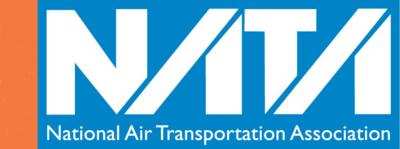Flight-Sharing Website Was Shut Down By The Government Last Year
The Obama administration has advised the U.S. Supreme Court that it should let a ruling of the D.C. Circuit stand and not take up the case of Flytenow Inc., a web-based service through which pilots offered seats on private airplanes to people willing to share the expense of the flight.

When the site was closed down last year, the government said that Flytenow was acting as a "common carrier", much line a scheduled airline. Common carriers must use commercial pilots, and Flytenow violated the common carrier rules by allowing private pilots to offer rides to people who wanted to go where they were going.
The National Law Journal reports that the D.C. Circuit agreed with the FAA in its application of the Common Carrier standard. Flytenow appealed to the Supreme Court, but Ian Gershengorn, the acting solicitor general, said in the government's official response that the company's argument "is that the FAA and the court of appeals erroneously applied a long-established and legally appropriate definition of 'common carrier' to its particular business model. That fact-bound and case-specific argument does not warrant this court's review."
Flytenow has argued that since its pilots do not make a profit from offering open seats to the public, they should not be governed by the common carrier rule. They also say that their First Amendment rights of free speech are being violated by forcing the website to close. In its filing with the Supreme Court, the government said that the very act of offering transportation of passengers or property by aircraft meets the definition of a common carrier.

Flytenow is backed by the Cato Institute, Tech Forum, National Federation of Independent Small Business, Southeastern Legal Foundation, Buckeye Institute and others, which are urging the Supreme Court to take up the case.
In a statement, NATA said that Flytenow is using deception to sway public opinion to its side. "Flytenow attorneys continue to try and use smoke and mirrors in an attempt to convince people it is now acceptable to allow the general public to 'ride-share' with private pilots with potentially little flight time or training for challenging weather conditions,” stated NATA President Marty Hiller. “Rather than admit that for safety reasons our laws prohibit air transportation by unlicensed operators, their lawyers argue the FAA is anti-technology and is banning pilots from using the Internet. In fact, the FAA has not banned pilots from communicating on the Internet. As the U.S. Court of Appeals noted in one of several legal rebukes issued to Flytenow, 'Pilots communicating to defined and limited groups remain free to invite passengers for common-purpose expense-sharing flights…so long as they share a common purpose and do not hold themselves out as offering services to the public.'
Consistent with previous attempts to offer the same service using telephone-based technology, the FAA determined the Flytenow service establishes private pilots as common carriers and therefore requires additional safety certifications for both the pilots and their aircraft."

Hiller continued, “The very existence of a 'common-purpose' test is Flytenow’s real legal dilemma and it is instructive to look at the legislative language that it supports. In order to override the agency’s safety regulations, Flytenow proposes to eliminate the common-purpose test. We do not believe the Supreme Court will grant cert in this matter because it is neither a novel question of law nor are there any disputes between the lower courts as to the FAA’s interpretation of the Flytenow model. NATA will continue to educate lawmakers on how Flytenow is simply selling old wine in a new bottle to ultimately undermine the safety of the flying public.”
"FlyteNow proposes offering its service to the general public," said NATA Board Chairman Andy Priester, President and CEO of Priester Aviation, a provider of on-demand air charter. "Right now, the public is protected through commercial authorizations by the FAA and DOT that require charter operators to adhere to significant maintenance requirements and pilot training – requirements that are completely neglected by the FlyteNow model."
 Aero-News: Quote of the Day (10.23.25)
Aero-News: Quote of the Day (10.23.25) ANN's Daily Aero-Linx (10.23.25)
ANN's Daily Aero-Linx (10.23.25) ANN FAQ: Turn On Post Notifications
ANN FAQ: Turn On Post Notifications Classic Aero-TV: Kitfox Upgrades Back-Country Undercarriage
Classic Aero-TV: Kitfox Upgrades Back-Country Undercarriage Airborne-NextGen 10.21.25: NZ Goes Electric, World Cup UAVs, eAviation Shuttered
Airborne-NextGen 10.21.25: NZ Goes Electric, World Cup UAVs, eAviation Shuttered





